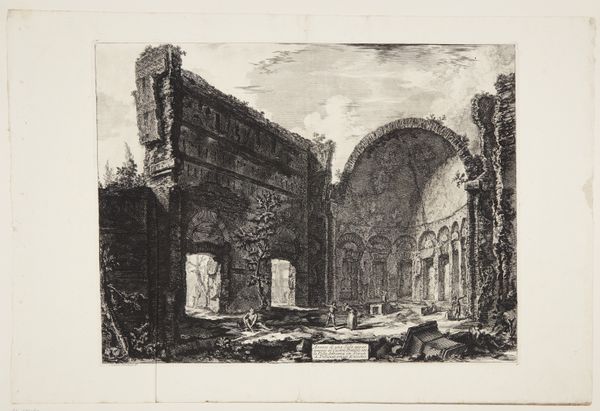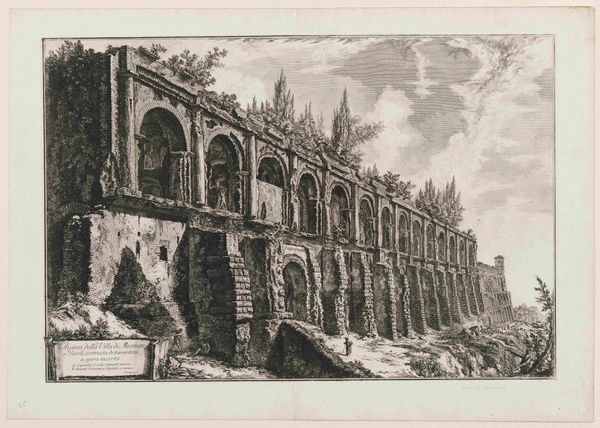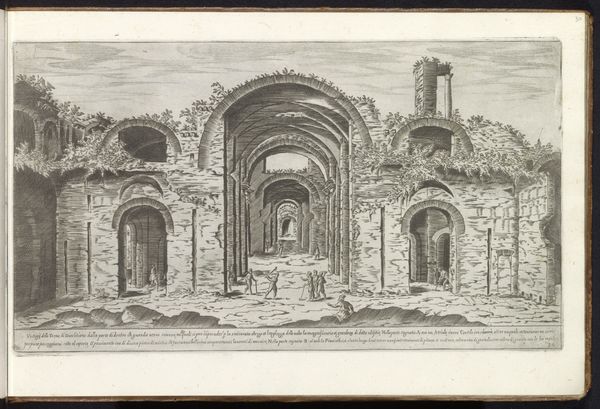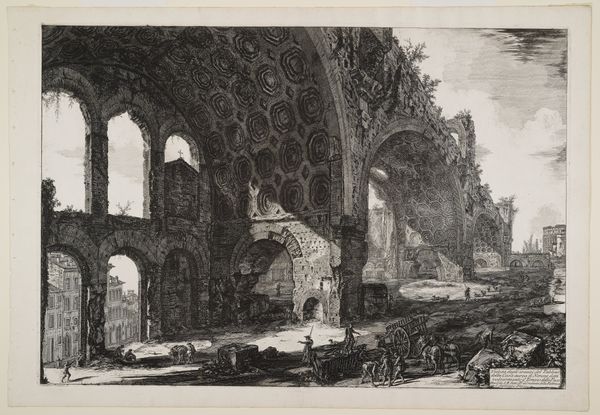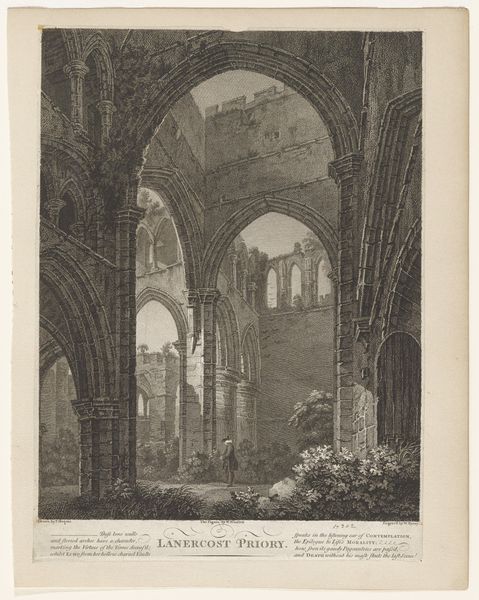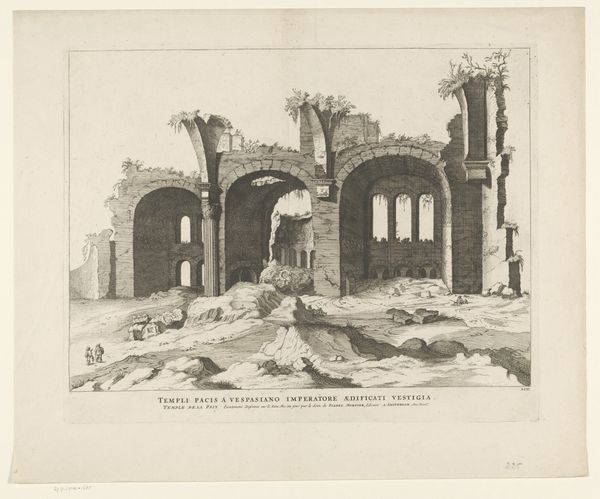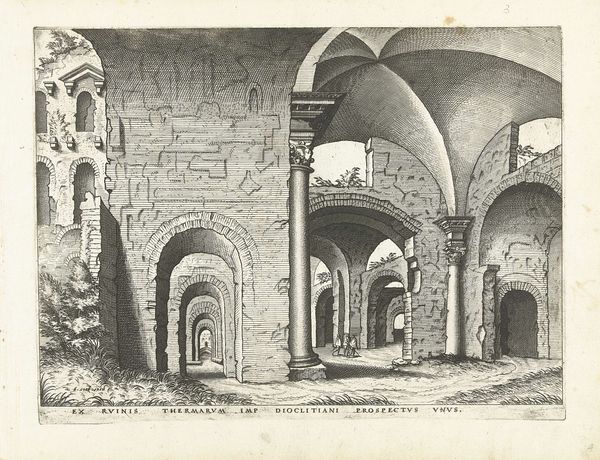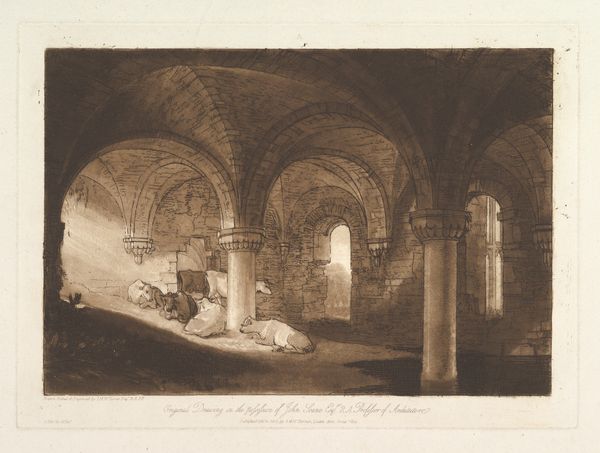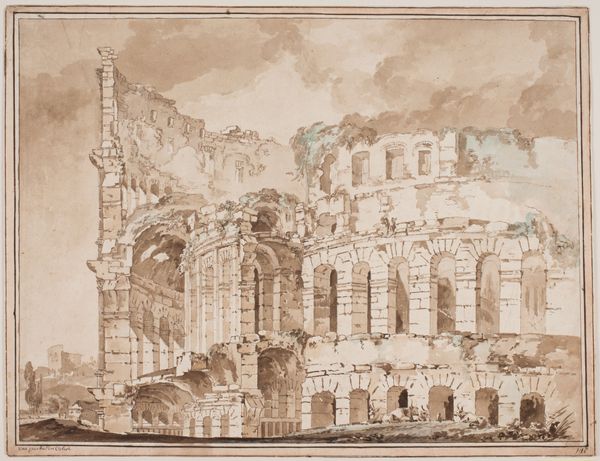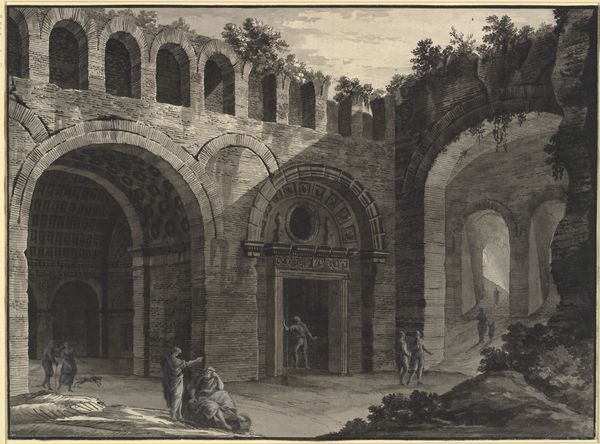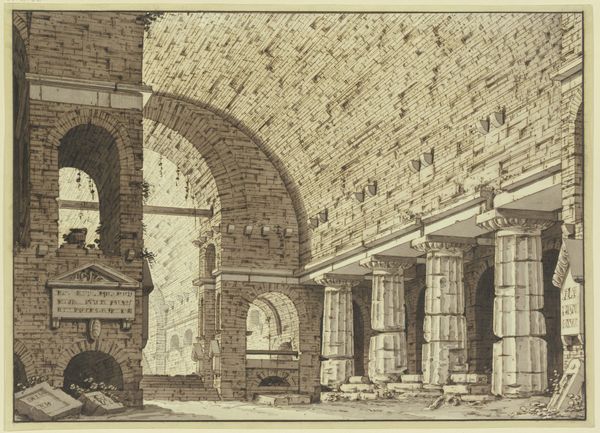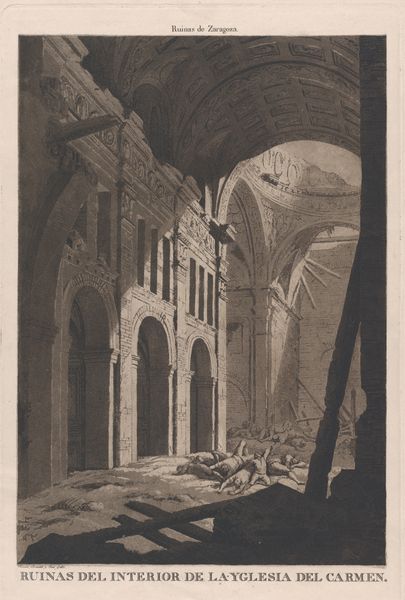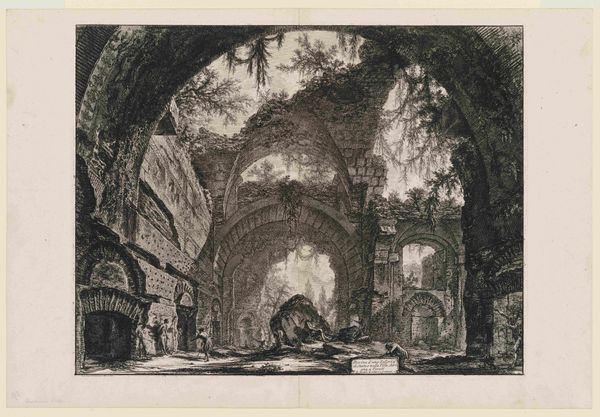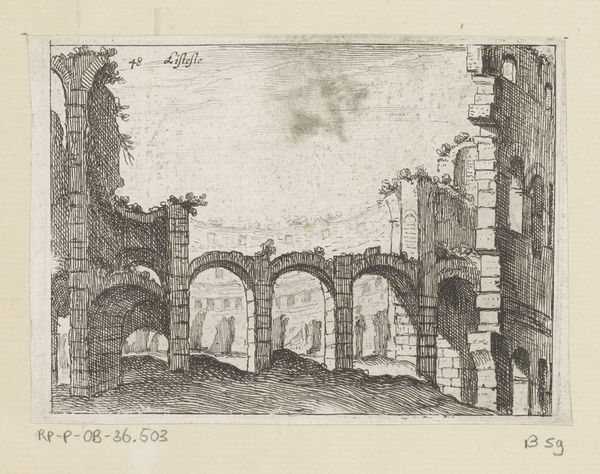
Holy Island Cathedral (Liber Studiorum, part III, plate 11) 1808
0:00
0:00
drawing, print, etching, ink, pencil, engraving, architecture
#
drawing
#
medieval
# print
#
etching
#
landscape
#
ink
#
romanticism
#
pencil
#
history-painting
#
engraving
#
architecture
Dimensions: plate: 7 1/8 x 10 7/16 in. (18.1 x 26.5 cm) sheet: 8 3/16 x 11 1/2 in. (20.8 x 29.2 cm)
Copyright: Public Domain
This print of Holy Island Cathedral was made by J.M.W. Turner, employing etching and mezzotint. These are both intaglio printmaking methods, meaning the image is incised into a plate, which is then inked and pressed onto paper. The atmospheric quality of the print is largely due to the mezzotint process. It involves roughening the entire plate with a tool called a rocker, then smoothing areas to create lighter tones. This allows for a wide range of shading and subtle gradations, seen here in the ruins of the cathedral. Turner likely etched the primary architectural details, before using mezzotint to develop the tones, adding depth and texture. The choice of printmaking underscores the relationship between art and industry. Unlike unique paintings, prints are made for wider distribution, catering to a growing art market. Turner capitalised on the relatively inexpensive printmaking medium, which allowed his work to reach a broader audience, democratizing access to art. Appreciating the making of this print, challenges conventional notions of artistic labor and value.
Comments
No comments
Be the first to comment and join the conversation on the ultimate creative platform.
